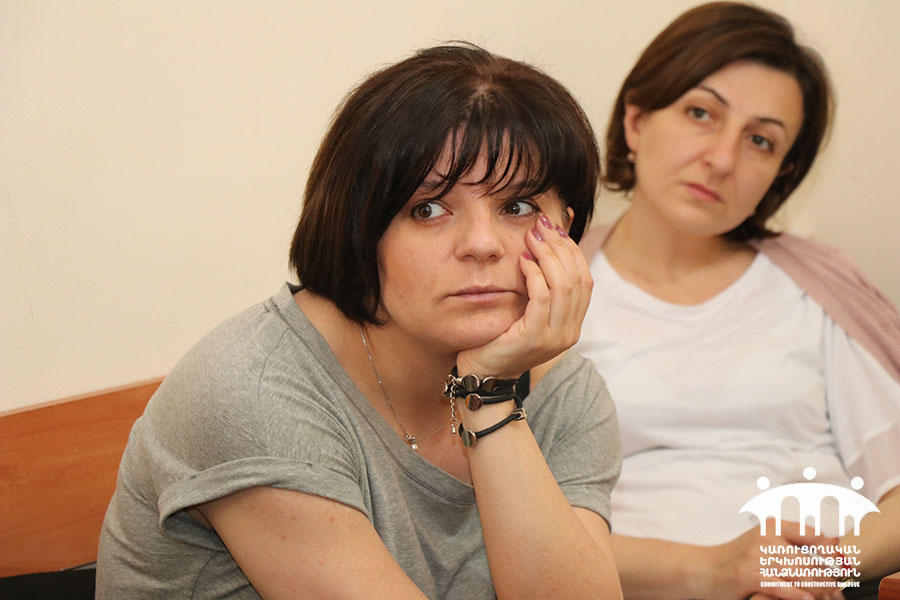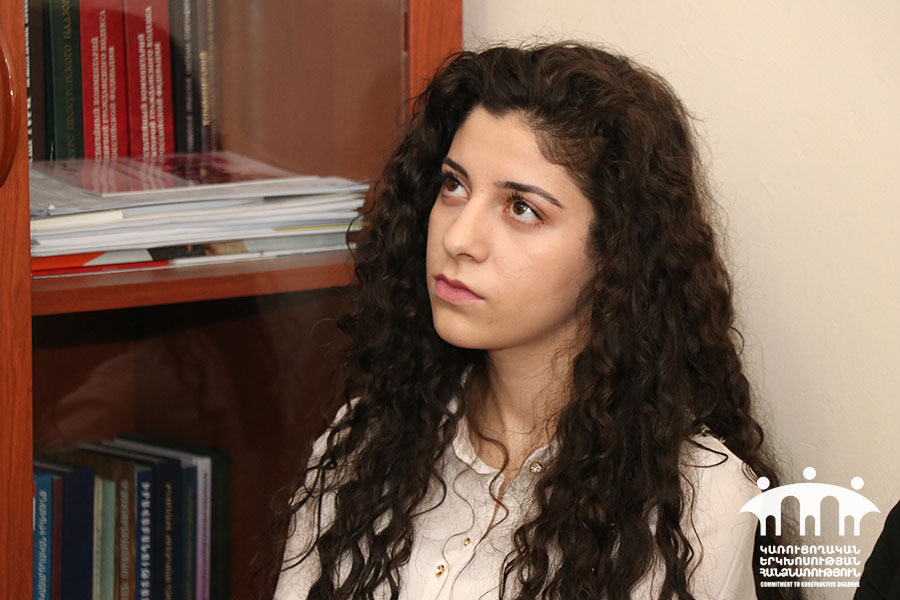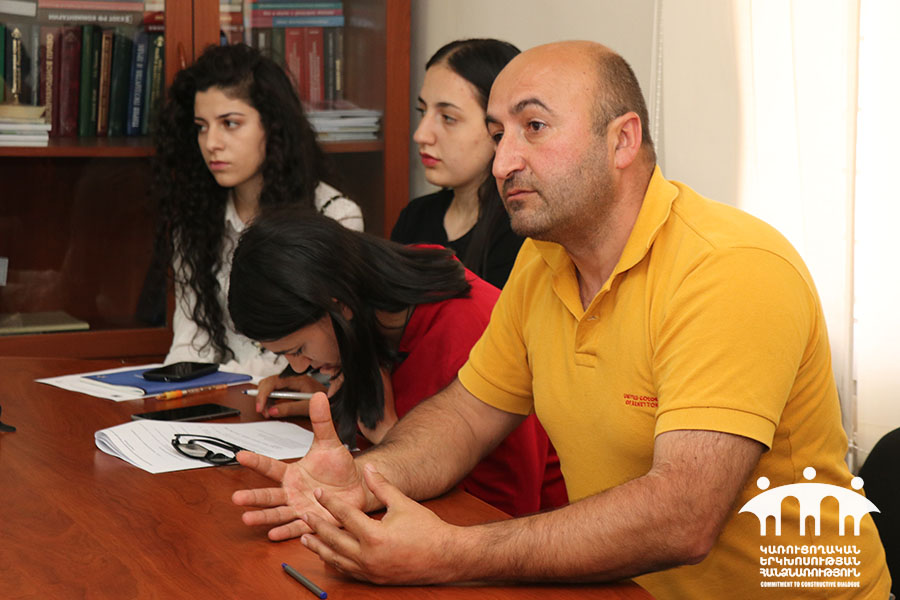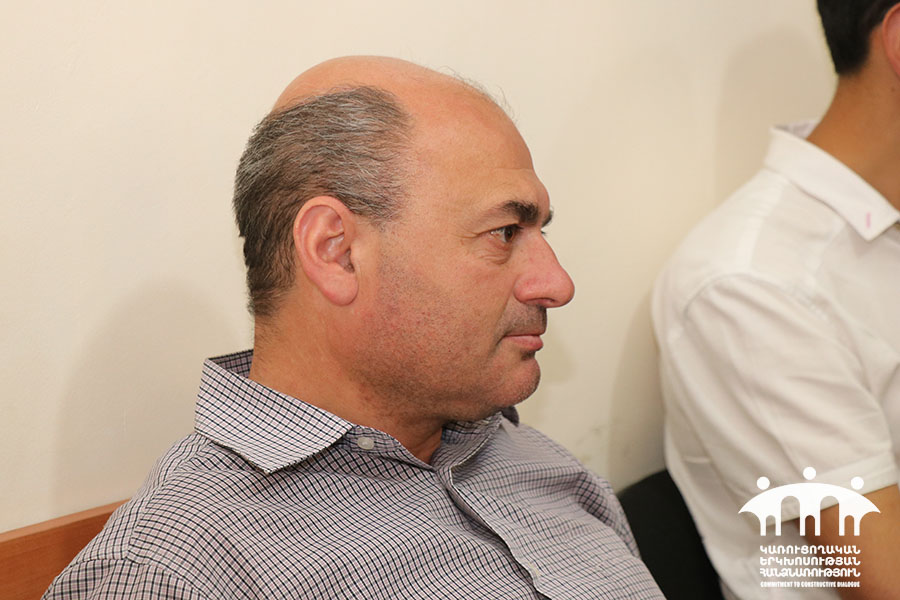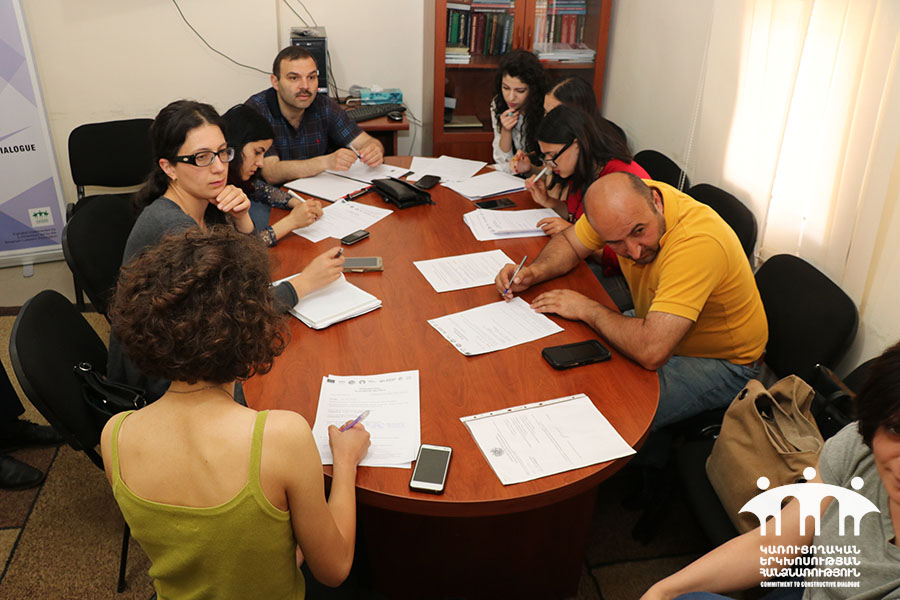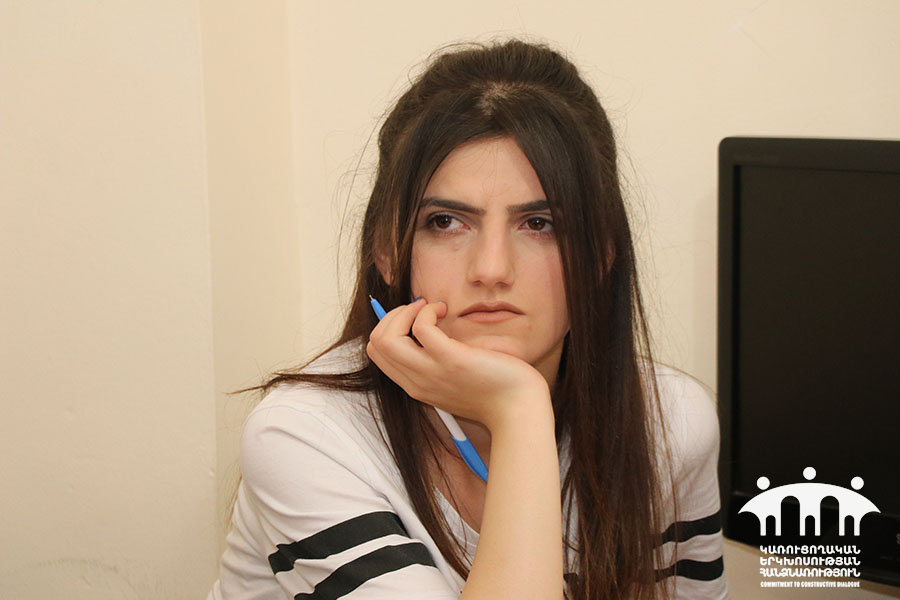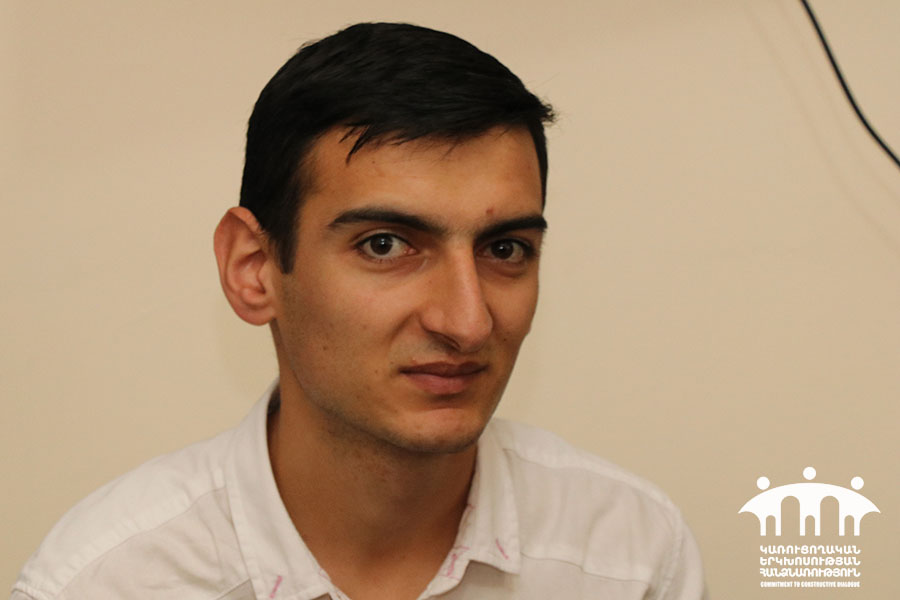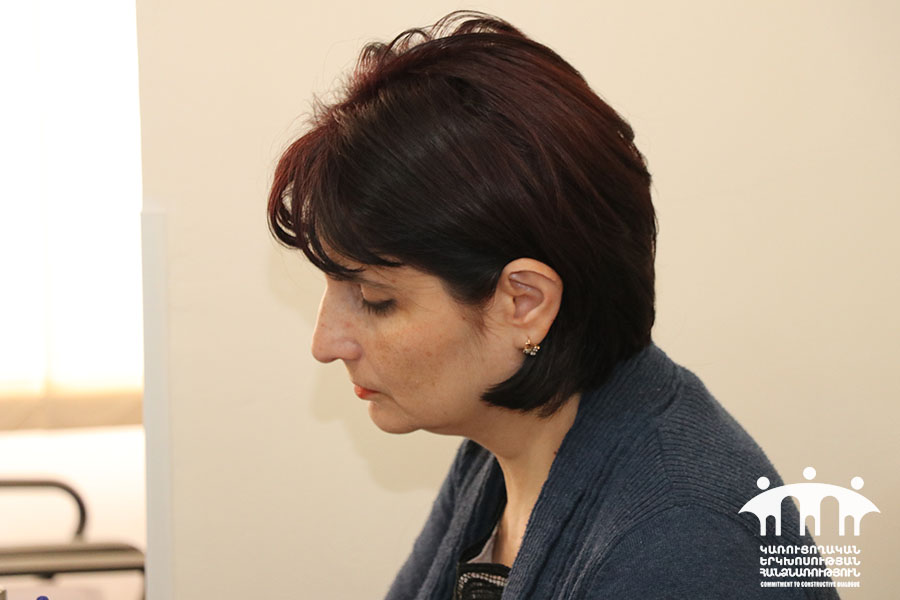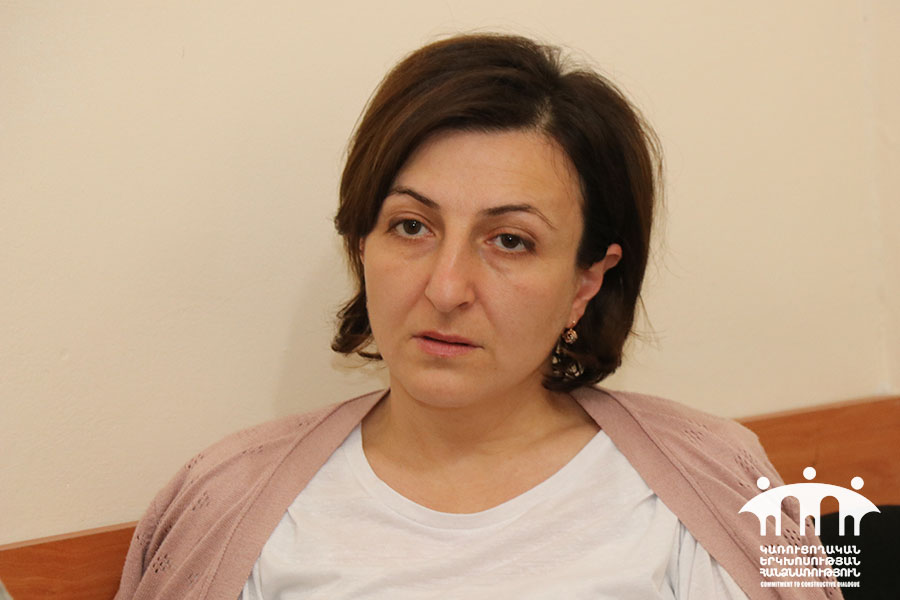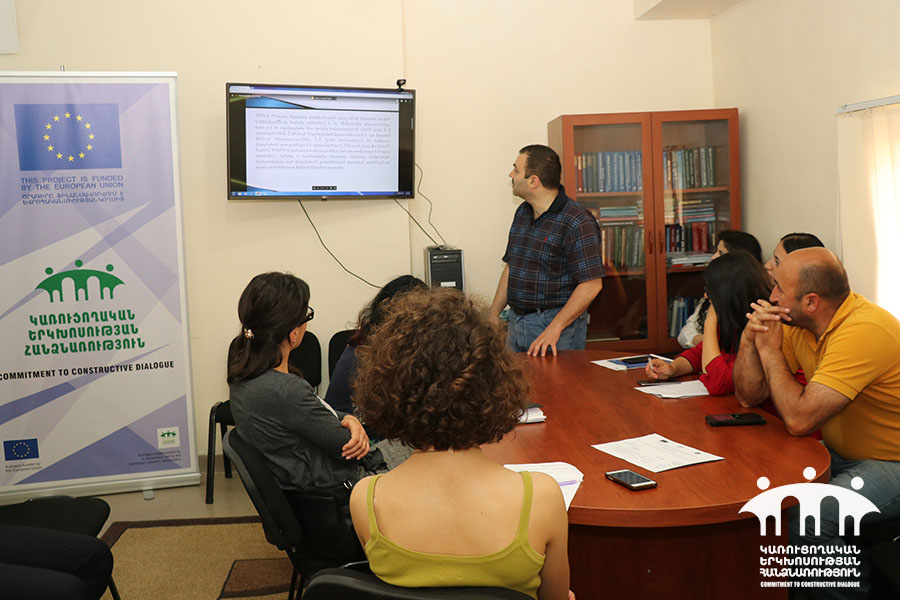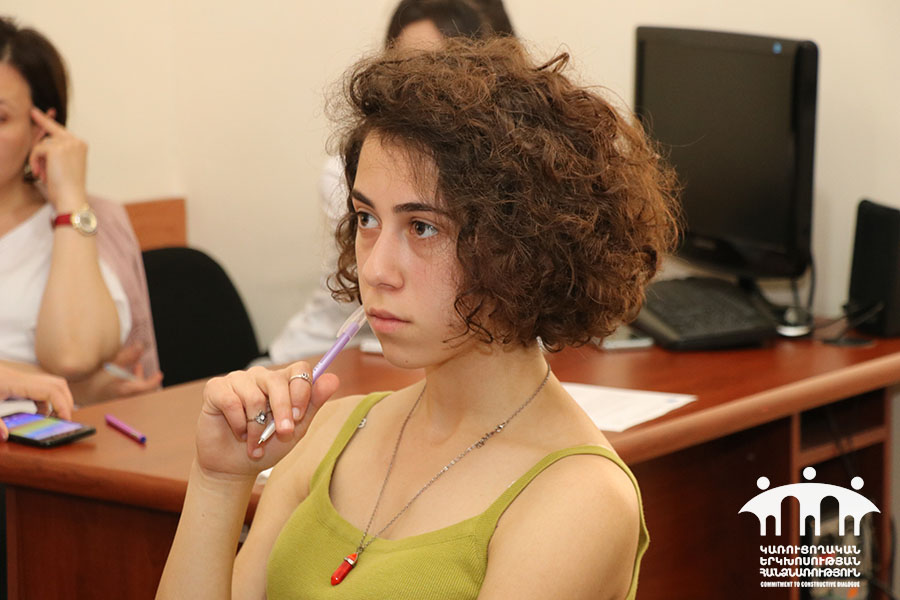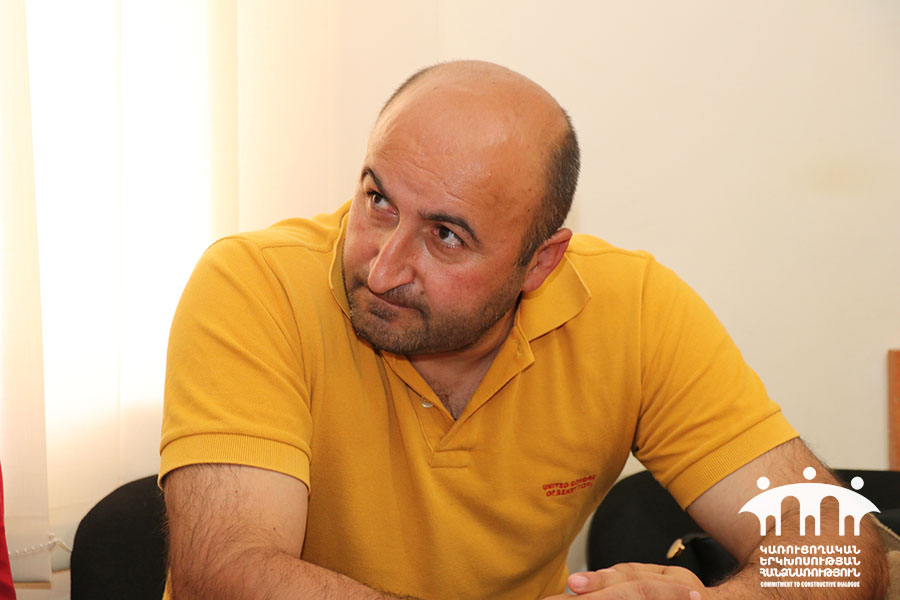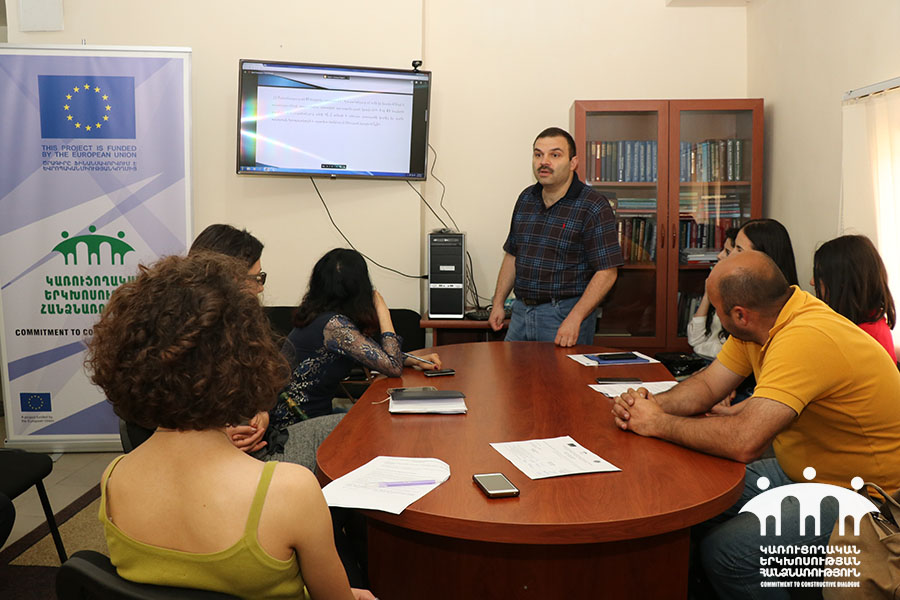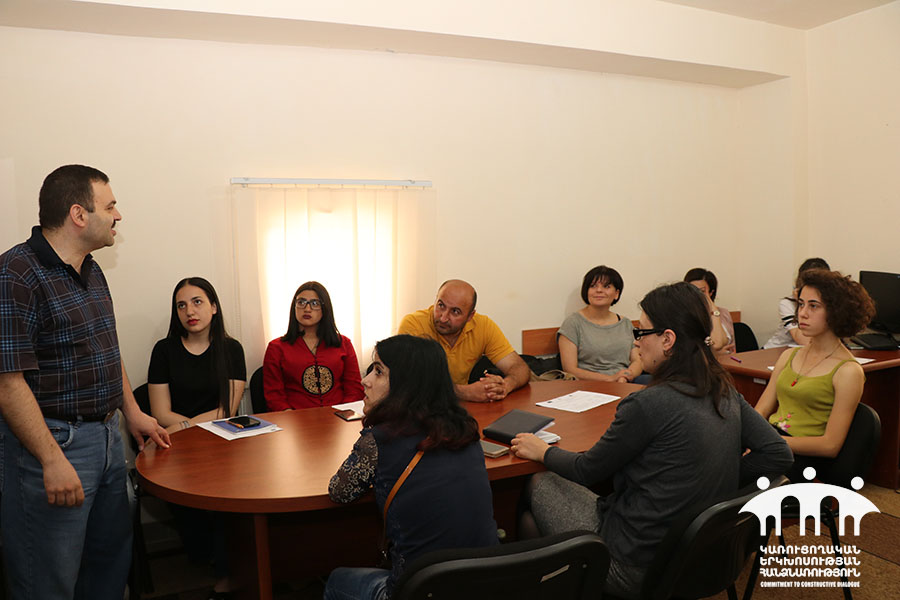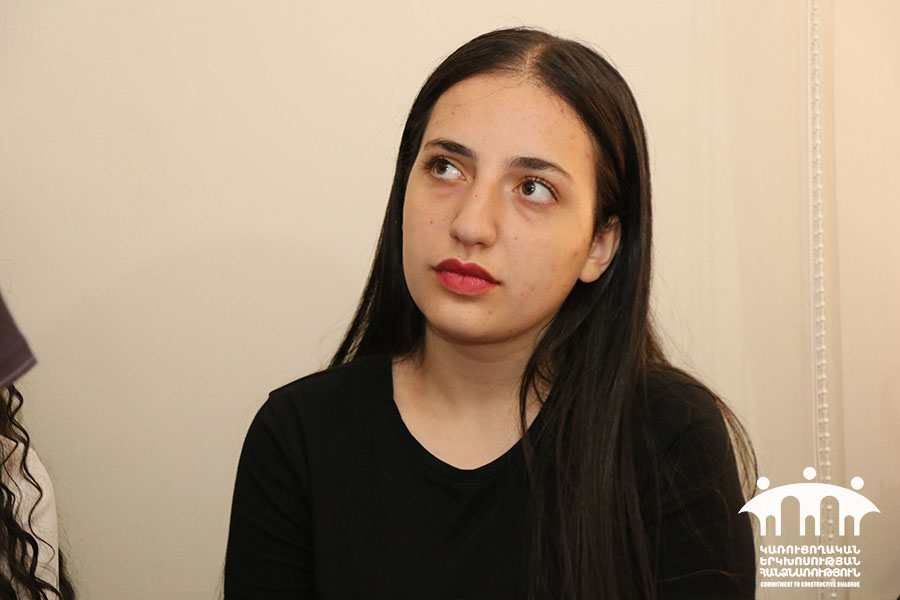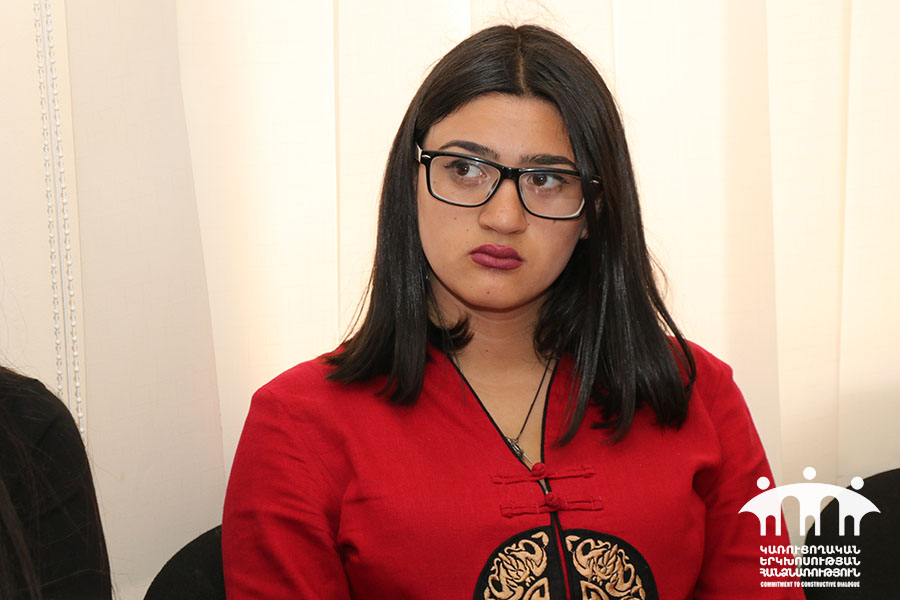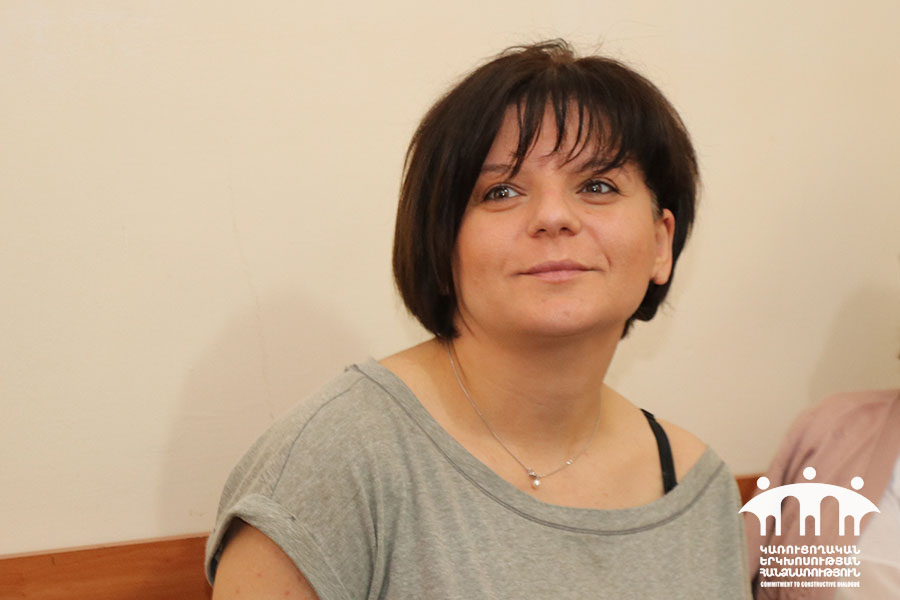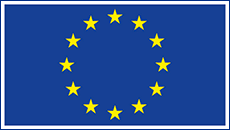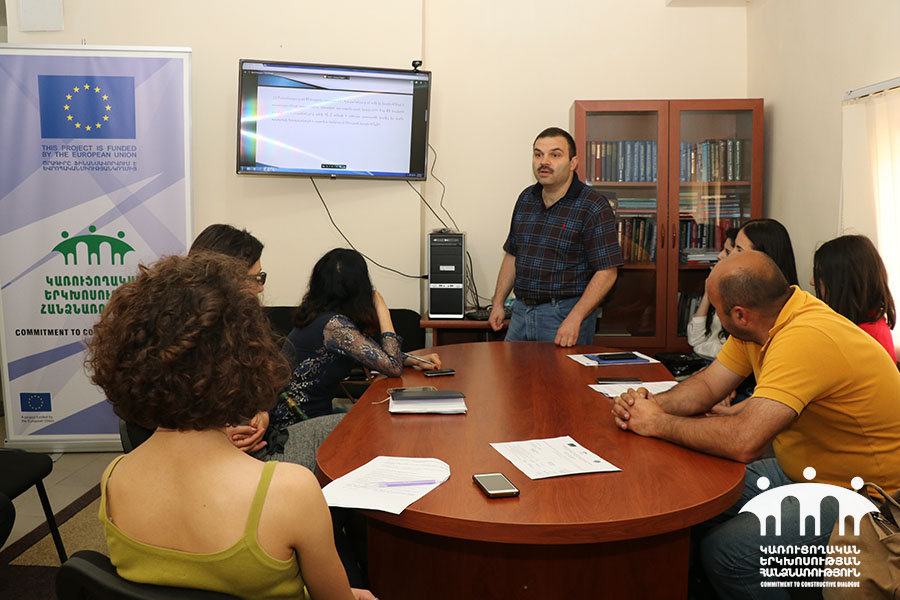
A lecture on “Human Rights։ The need for improvement of the procedures for the application of anti-discrimination legislation for judges, including the need to adopt a procedural guideline” took place organised during the training at CSOs Incubator in Vanadzor in the framework of “Commitment to Constructive Dialogue” Project on 13 June.
Mr. Marat Atovmyan, Mentors’ Group Coordinator/Justice and Related Sectors Mentor of the “Commitment to Constructive Dialogue” Project delivered the lecture. He noted that access to justice is a fundamental principle of human rights provided in the Universal Declaration of Human Rights and a number of human rights instruments, including the International Covenant on Civil and Political Rights, the European Convention for the Protection of Human Rights and Fundamental Freedoms, the Convention on the Elimination of All Forms of Discrimination Against Women, and so on.
“The RA domestic legislation does not clearly define the term “discrimination,” even more, the RA legal system does not have a comprehensive law on discrimination. It should be noted that Armenia is a member of a number of international organisations and within the framework of membership of these organisations has undertaken the obligation to undertake necessary measures to ensure the application of anti-criminal legislation in the Armenian judicial system. Moreover, the notion of the stereotype is not defined in the RA legislative system, which also creates problems in the ineffectiveness of anti-criminal legislation,” Marat Atovmyan said.
According to him, CSOs have much to do here, and not only should the state work in this field. The trainer noted that it is possible to conduct different monitoring, awareness campaigns among the public, prepare different programs, etc.
At the end of the course, Marat Atovmyan and Artur Sukiasyan a lawyer of Lori regional branch, and Narek Yenokyan lawyer-expert of the project, provided consultations on justice, human rights, public finance management, education, social sphere and programmatic areas.
The experts discussed with representative of each organisation the issues related to the necessary internal documents of the organisation, specifically ethical rules, public policy development, areas of interest, and so on.
Artur Meliksetyan, representative of the NGO “Inter-Community Cooperation for the development of Rural Communities” noted that there organisation is new and needs to develop a procurement policy and strategic plan.
According to Manush Maralchyan, representative of “Young Tavush” Youth NGO, the organisation bases its work on social consultation and conflicts of interest. “We do it easily because we have community workers in 25 villages of Tavush region; we conduct sociological surveys and monitoring. We also need some information on procurement procedures.
Shushanik Sahakyan, from “Youth Ideas” Youth NGO, mentioned that the organisation is works in Dilijan and needs closer cooperation with the Ministry of Education and Science related to the issue of professional orientation.
Civil society organisations (CSO) incubators are aimed at promoting CSO’s capacity building and enhancing productivity.
The 9 target areas of the project are: Justice, Human Rights, Public Finance Management, Business, Education, Social sphere: Social inclusion of children with disabilities, Agriculture, Economy, and Energy. It is anticipated to disclose the issues that exist in the sectors through Government – CSO constructive dialogue format with the competent authorities of the sector; develop, advocate and improve public policy programs through innovative ideas and solutions.


